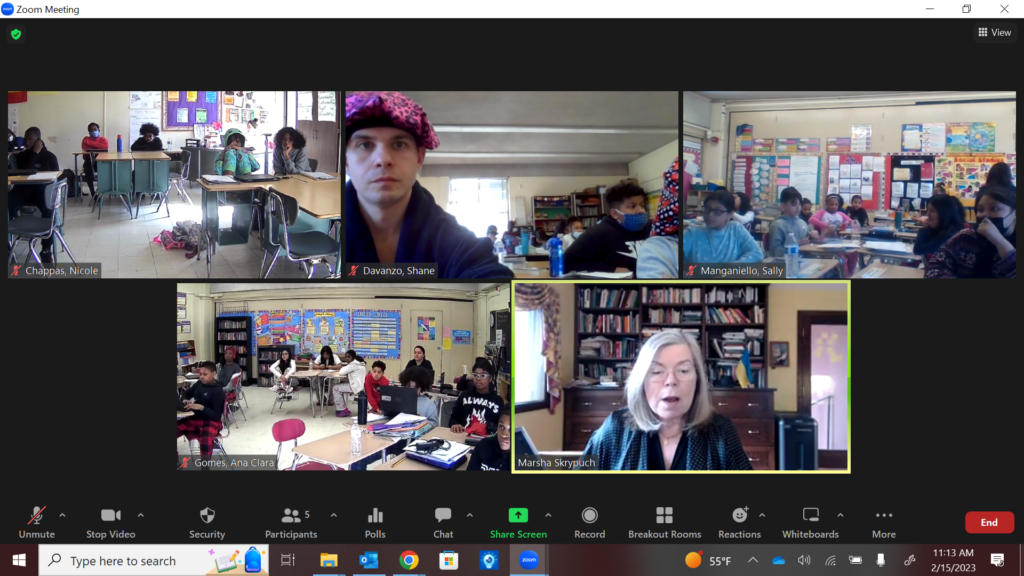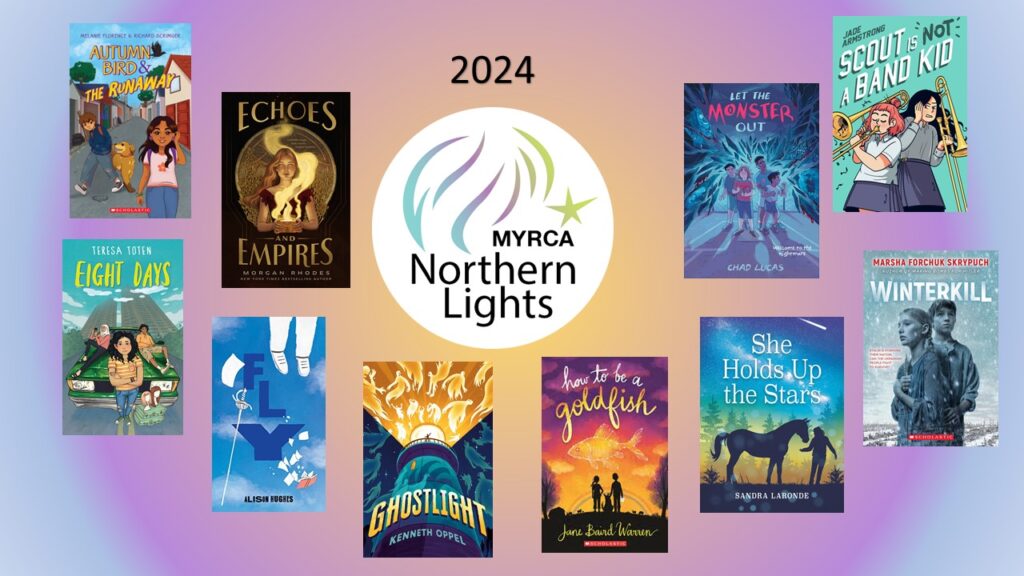
MYRCA Northern Lights nomination for Winterkill

writes about war from a young person's view #bannedbyrussia

I had the pleasure of visiting Arthurs MS in person in 2019 and so it was really neat to catch up with them again, albeit virtually. Those kids are now in high school but it was great to see the same wonderful educators and another crop of avid readers, including Alex, who described himself as my biggest fan. Also, they used the same Welcome Marsha sign! How cool is that?
Here are my fave questions from this session:
In Winterkill, Auntie Pawlina’s songbook is destroyed by the shockworkers. In real life, what was the fate of her collected songs?
Why were you banned by Russia?
When you write a novel, do you use an outline?
Why does Russia hate Ukraine?
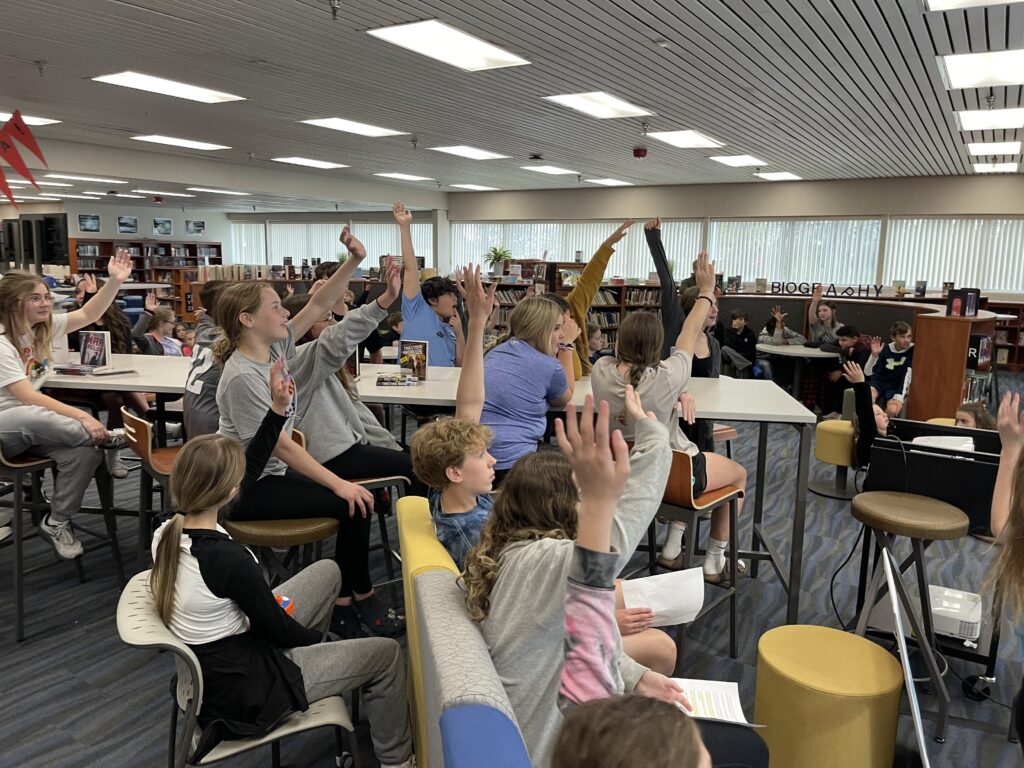
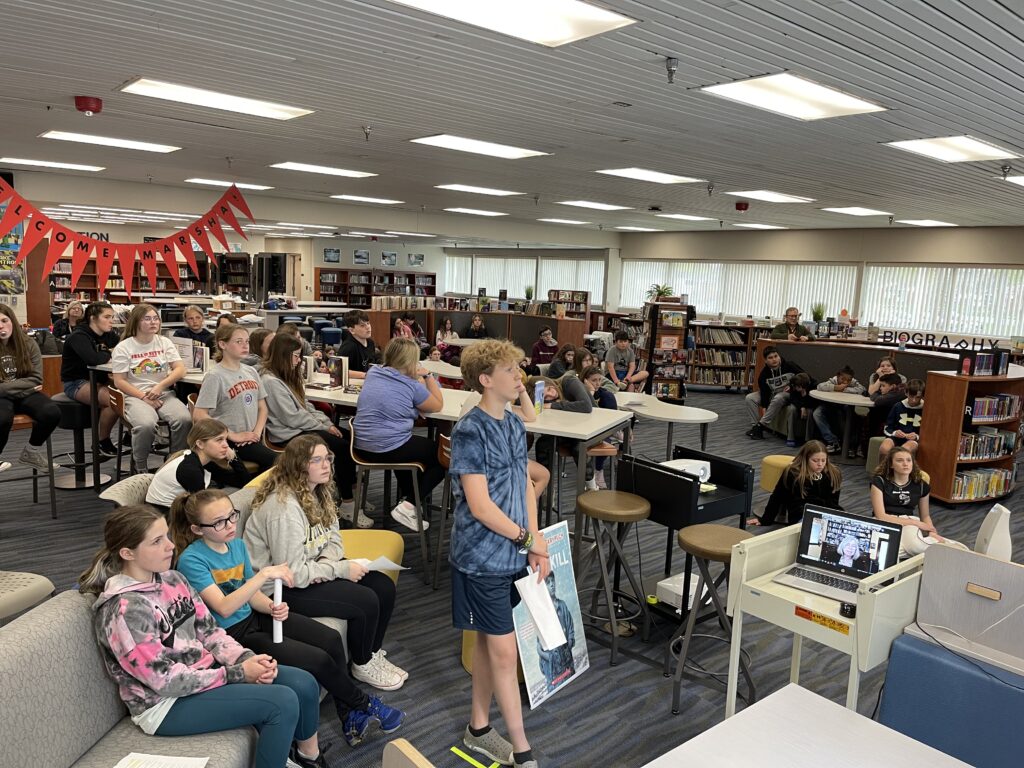
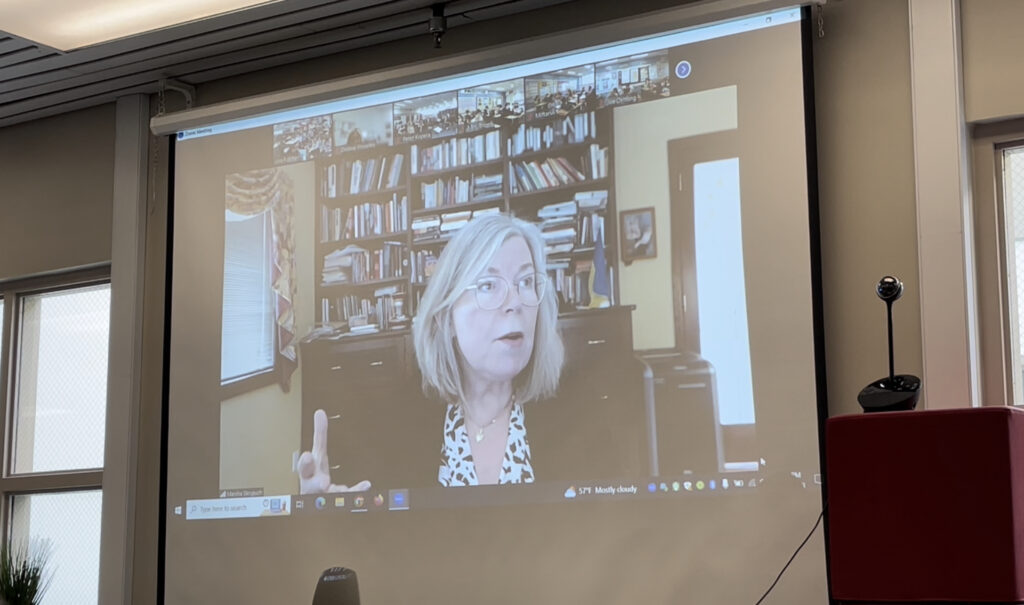
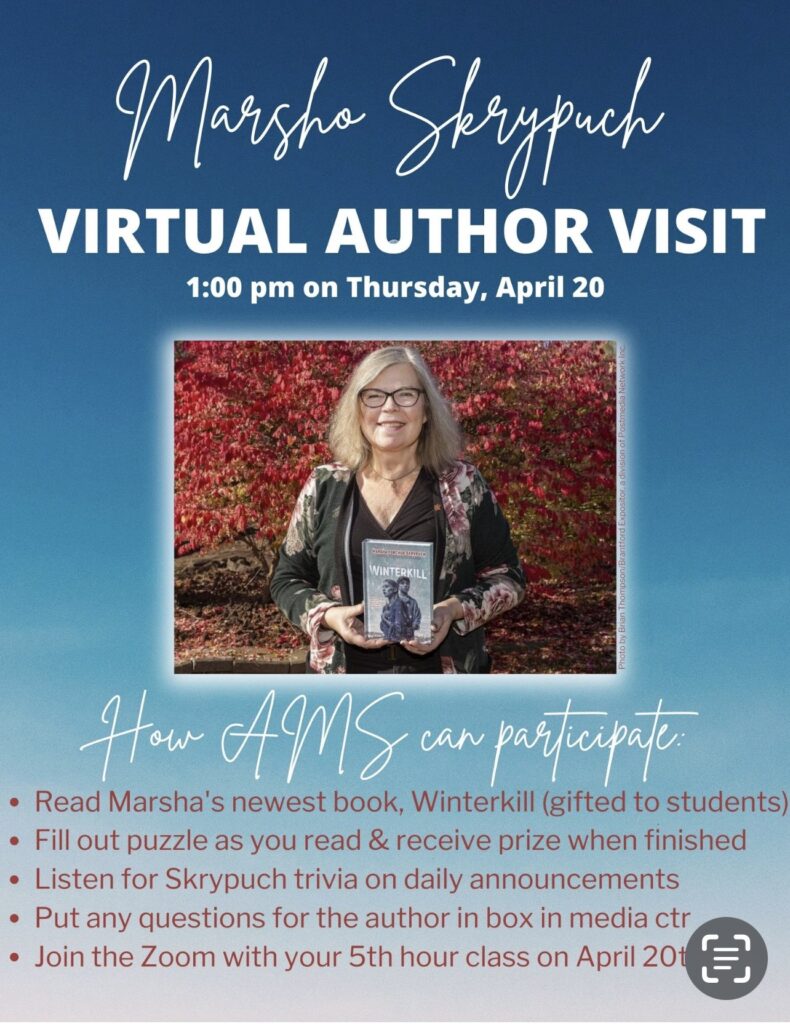
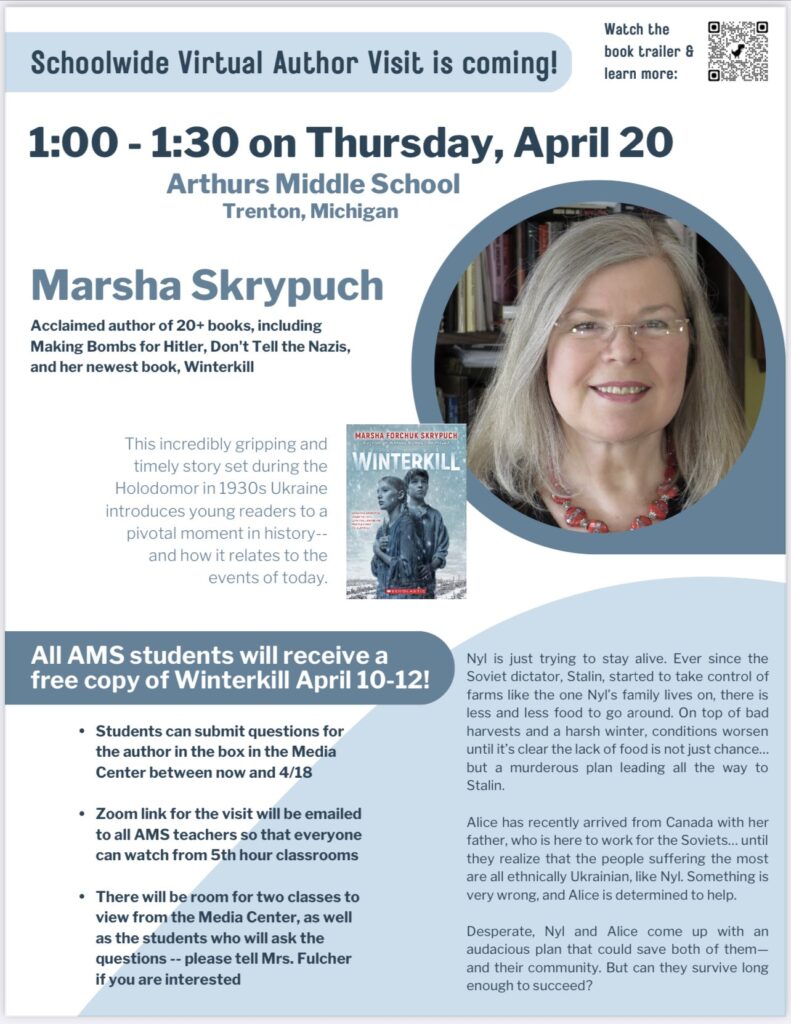
I like to leave lots of room for questions when presenting to students and this morning’s questions were superb! The topic was Winterkill, set during the Holodomor. Plus, I always talk about my own struggles as a kid, for example not reading til I was 9, and being bullied. Here are some of my favorite questions of the day:
If the Holodomor was such a huge event, how was it possible to hide it?
How did you deal with the bullying, and were you able to get it to stop?
Did you ever regret writing your first book about the Holodomor (Enough), seeing as you were subjected to so much hate because of it?
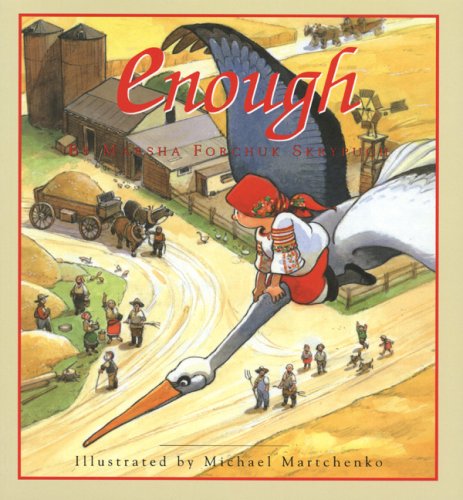
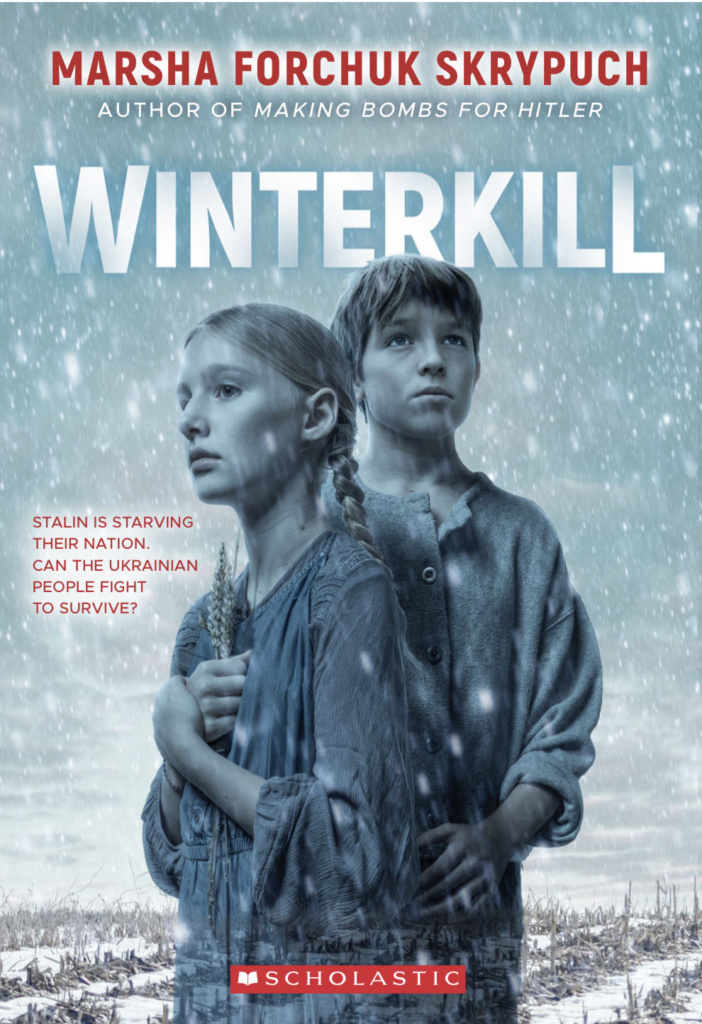
Thank you, Dr. Mateusz Świetlicki, for this thorough examination of Winterkill, particularly in terms of historical veracity and how the novel gives needed context to the Russian Federation’s current genocidal war against the Ukrainian nation and culture. This paper is a great resource for educators who are doing a novel study with Winterkill. Here’s the link.
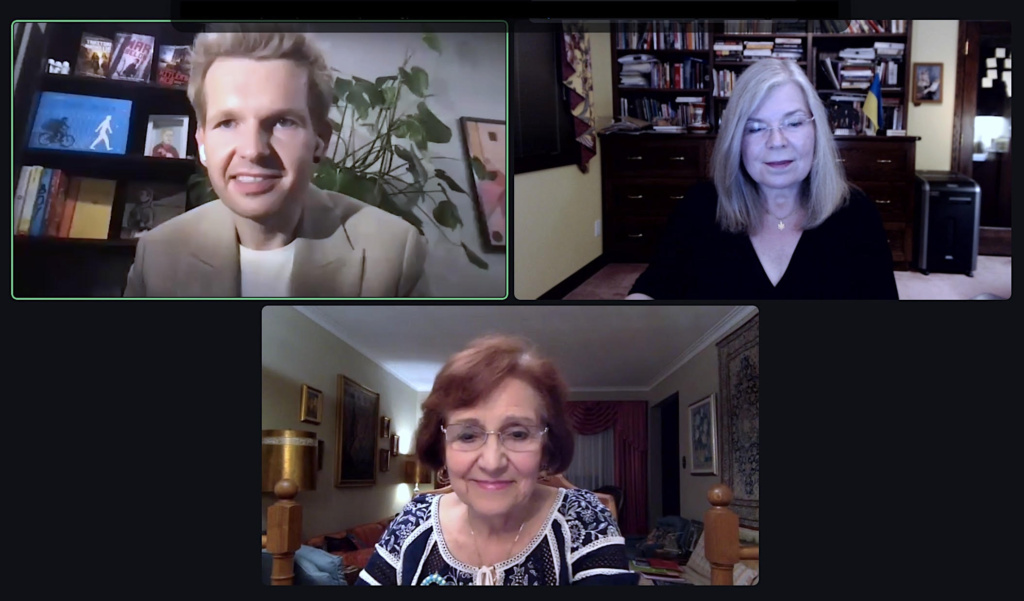
Some really great questions about the Holodomor and Winterkill, particularly about individual characters in the book and what their lives looked like after the book was over. But my favorite question of the virtual session was, “What’s it like to be over 60 years old?” I told him that inside, I still feel 12 years old. Another student asked if I would ever work with an illustrator to make one of my books into a graphic novel and I said that was a great idea and would love to see it happen with Making Bombs for Hitler. I showed them Five Stalks of Grain by Adrian Lysenko and Ivanka Galadza and suggested they would like it. I also showed them Sylvia McNicholl’s What the Dog Knows when asked about my current fave book. Thank you, HREC ED, for funding this presentation.


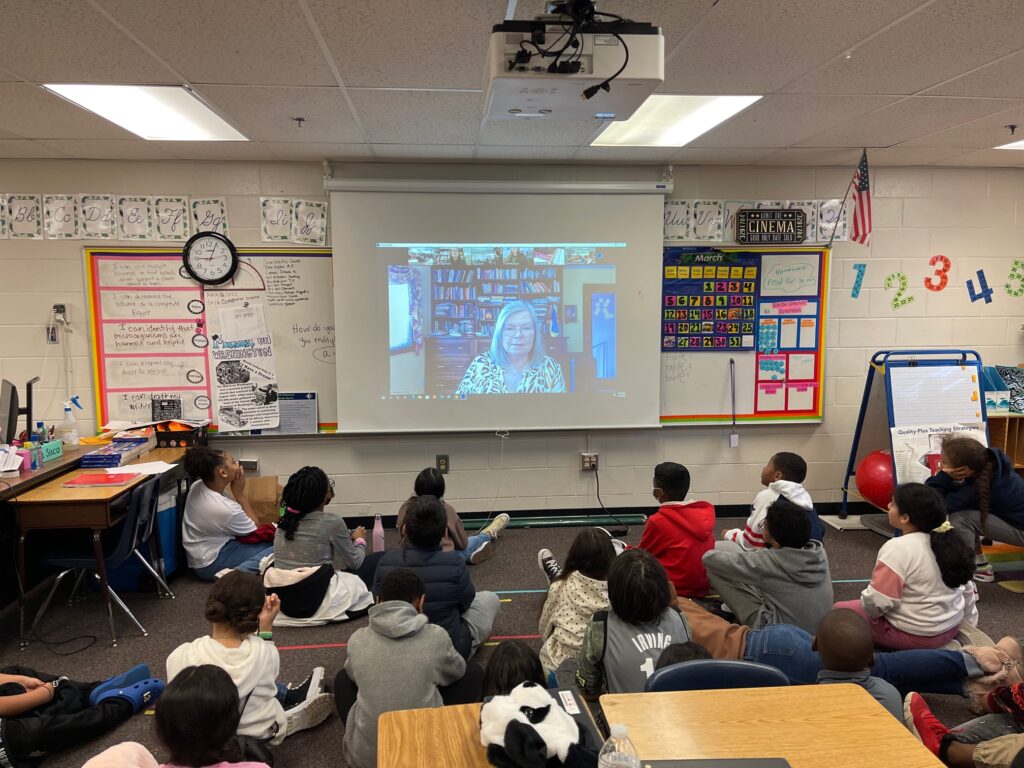
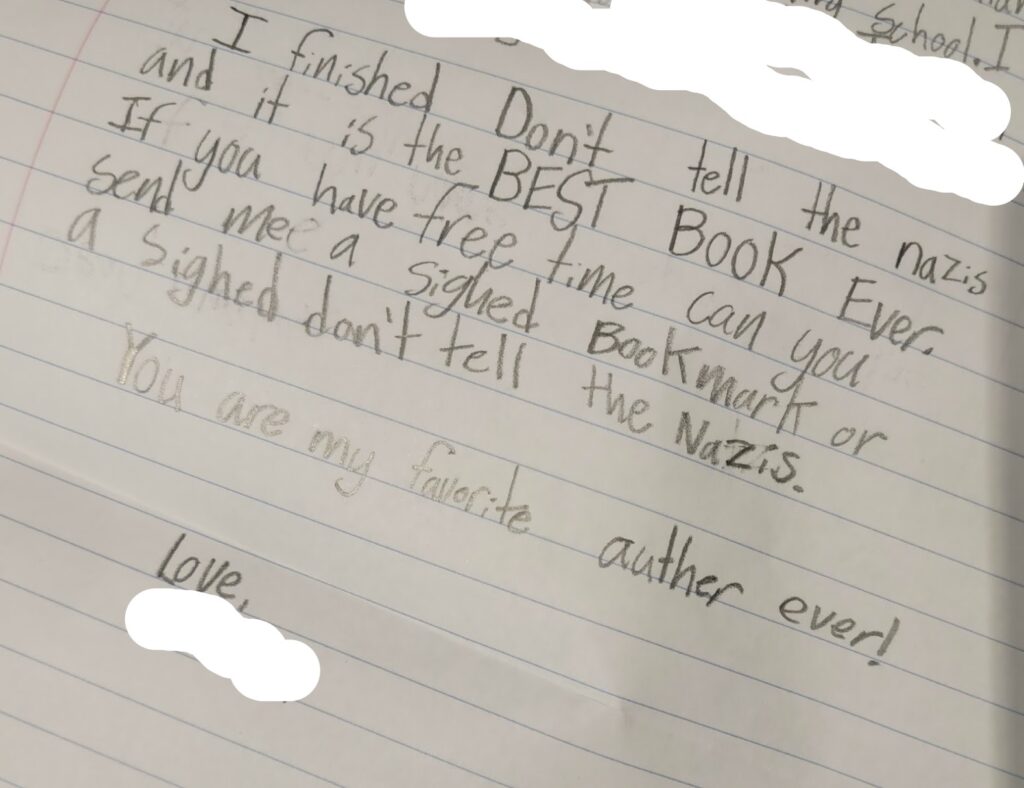
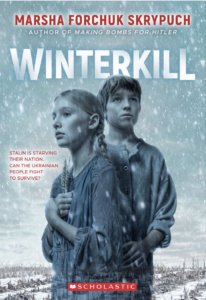
Very pleased to have a teachers’ guide for Winterkill that is freely available for use. Thank you, HREC ED, for funding it, and thank you Kristen Davison for creating it.
Such a pleasure to meet with 4 schools today! First up was Delran Middle School in NJ. Students had just finished reading Making Bombs for Hitler and we had such good discussions about the real people and history behind that novel, that trilogy and also about Winterkill.
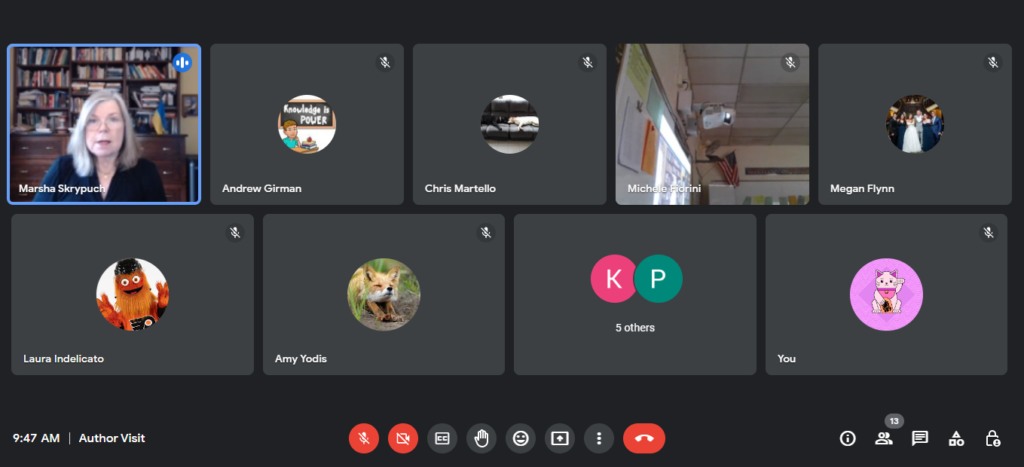
I also met with students from Souris School in Manitoba, East Selkirk MS, and Hollyburn School in West Vancouver.
Here are some Hollyburn pics:
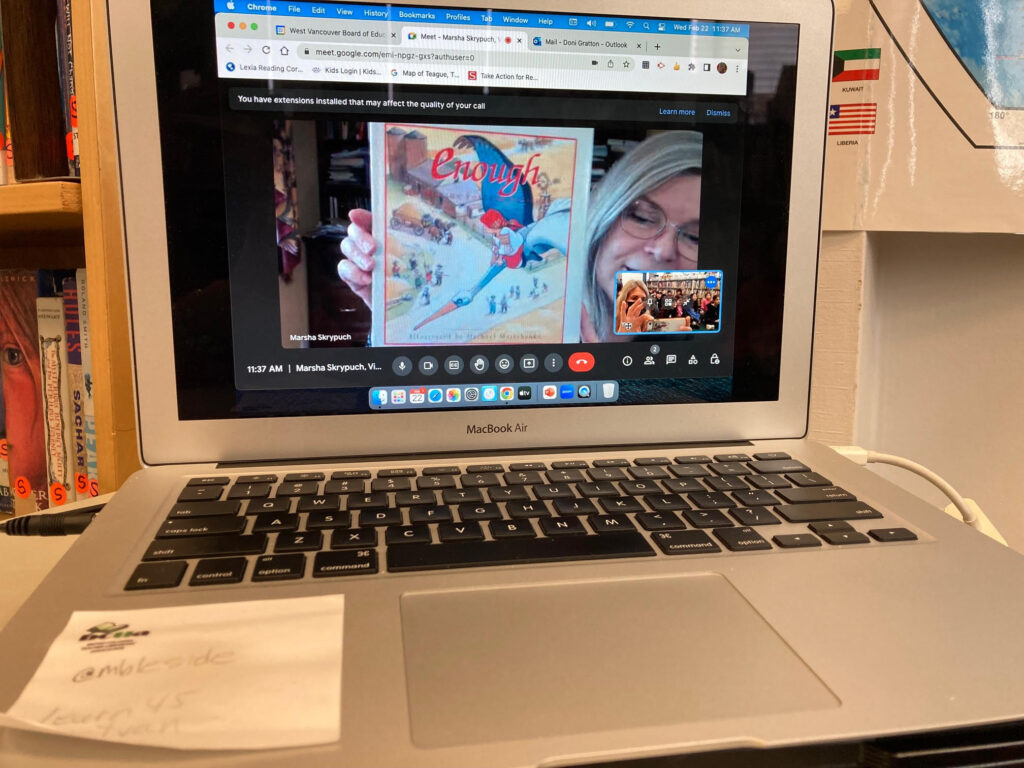
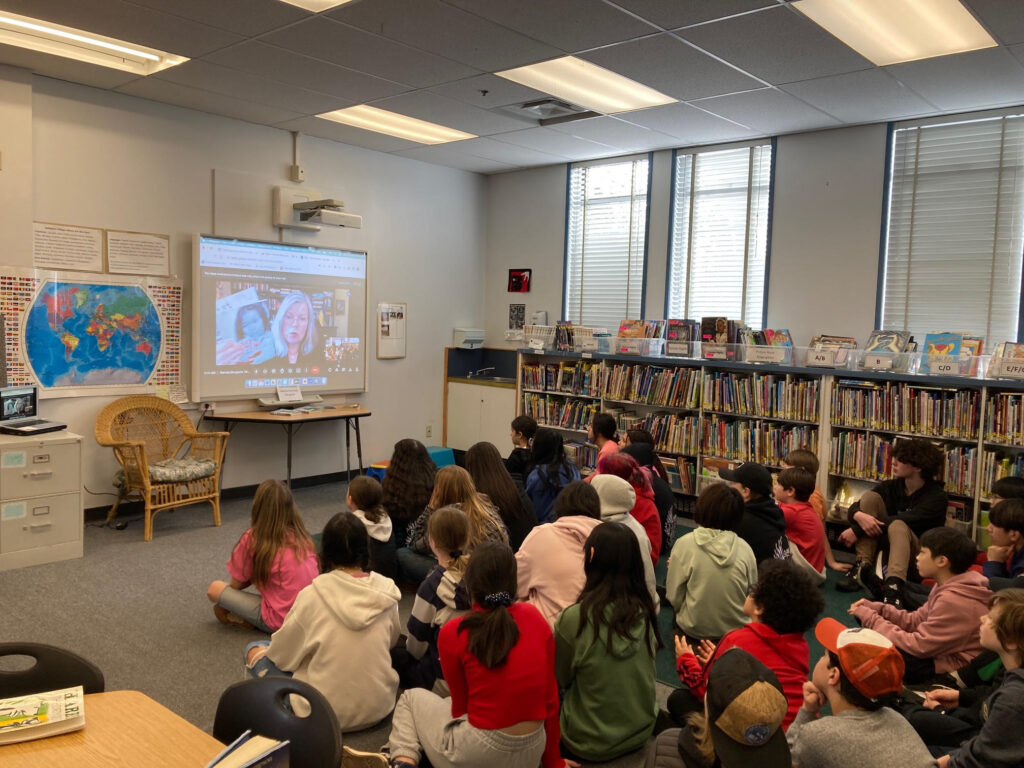
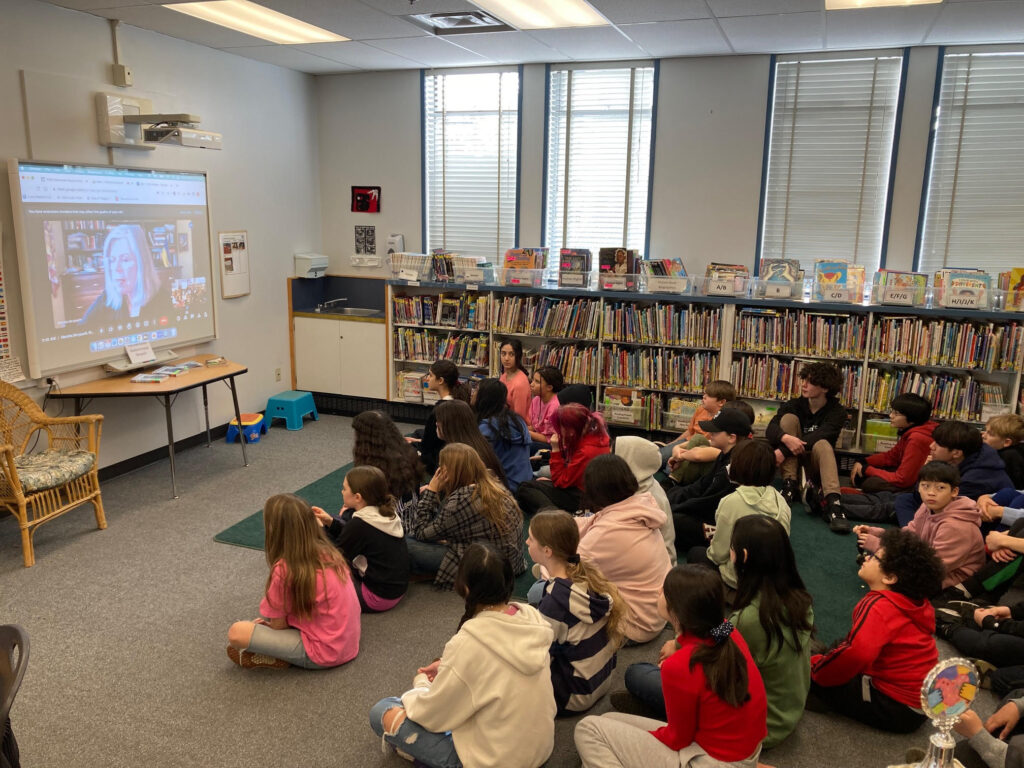
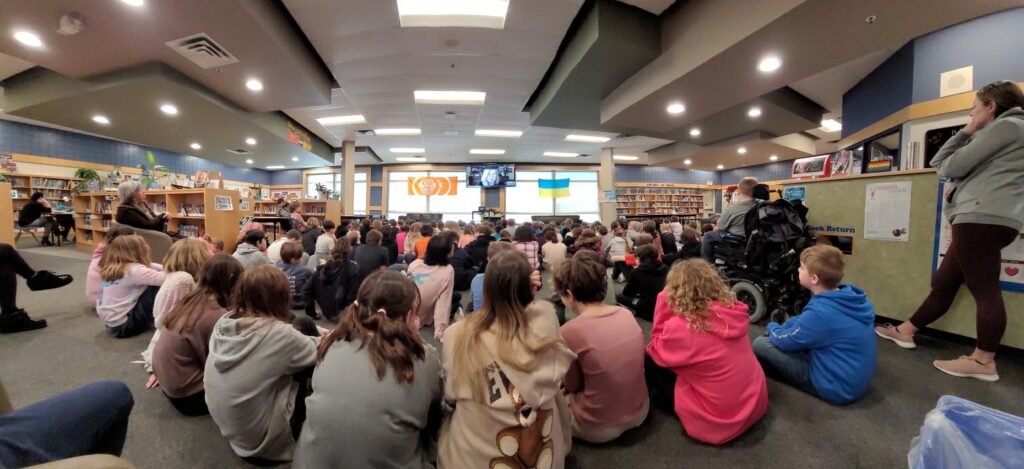
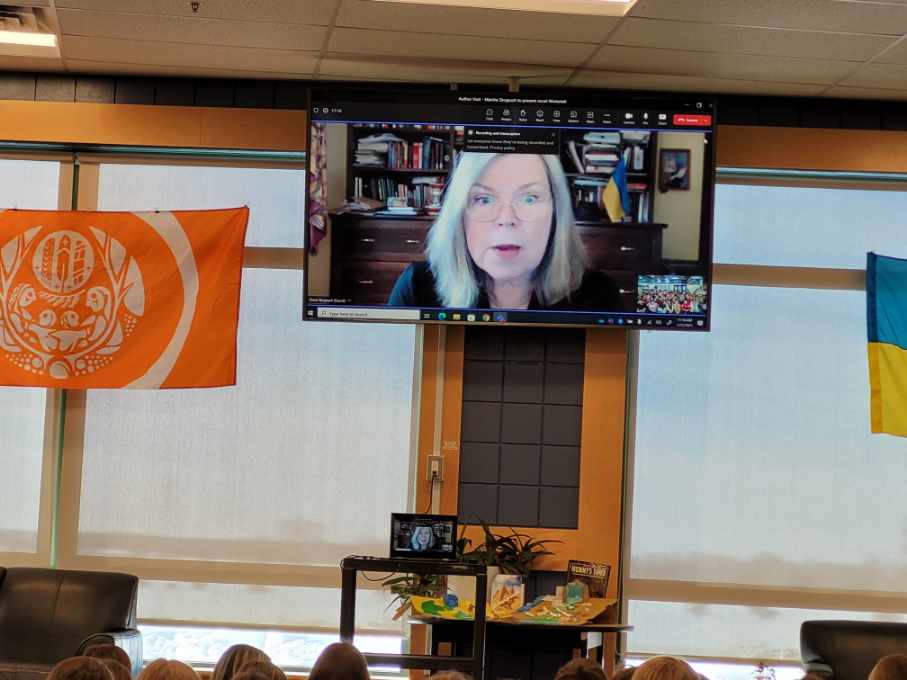
I admire Ali Velshi’s fierce defense of freedom to read. His Banned Book Club sheds light on books that illuminate, educate and irritate. Everyone should be able to read what they want and being able to read a variety of books from all different viewpoints is the cornerstone of a democracy. It was such an honor to have Winterkill featured today on Ali Velshi’s Banned Book Club segment, particularly because Ali is in Kyiv right now, highlighting the injustices of russia’s genocidal war. This is so important with the anniversary of the war fast approaching.
I was particularly impressed with the superb research that went into the Holodomor backgrounder as an intro to Winterkill. Deep respect for Ali Velshi.
Here’s the interview:
And a really good backgrounder on the Holodomor here:
#Winterkill tells the story of the very real #Holodomor – or Ukrainian Genocide – Stalin’s calculated attempt to exterminate the Ukrainians and their culture. Sound like today’s war in Ukraine? The parallels are shocking. #VelshiBannedBookClub pic.twitter.com/VPESU73Gsr
— Velshi on MSNBC (@VelshiMSNBC) February 18, 2023
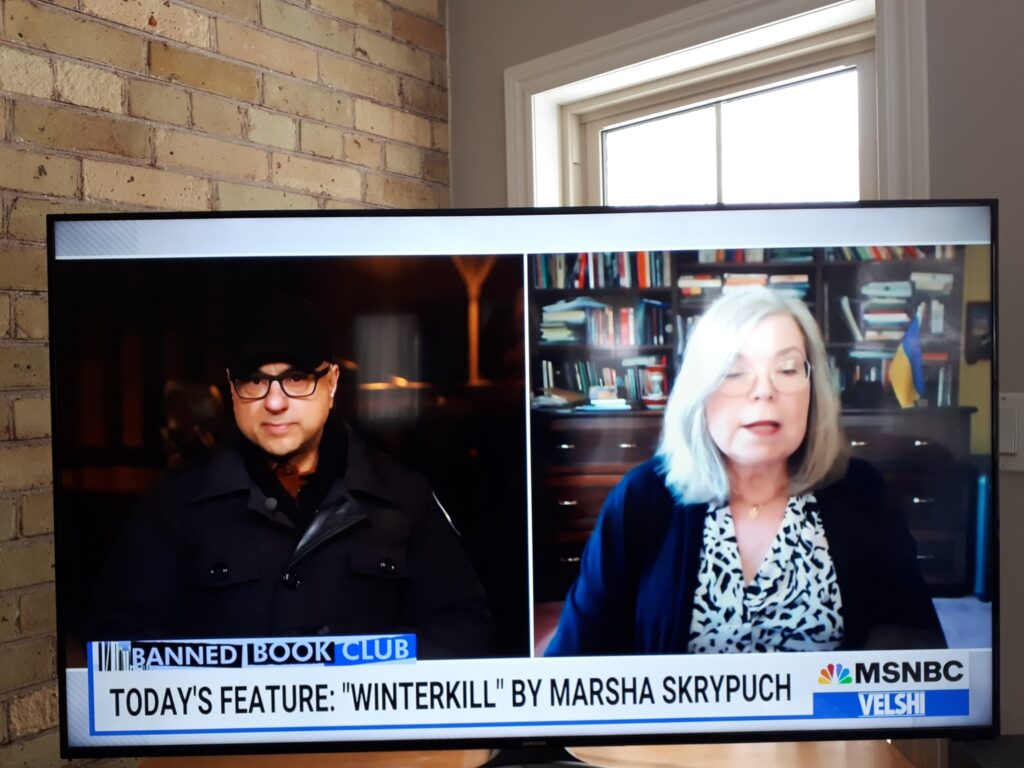
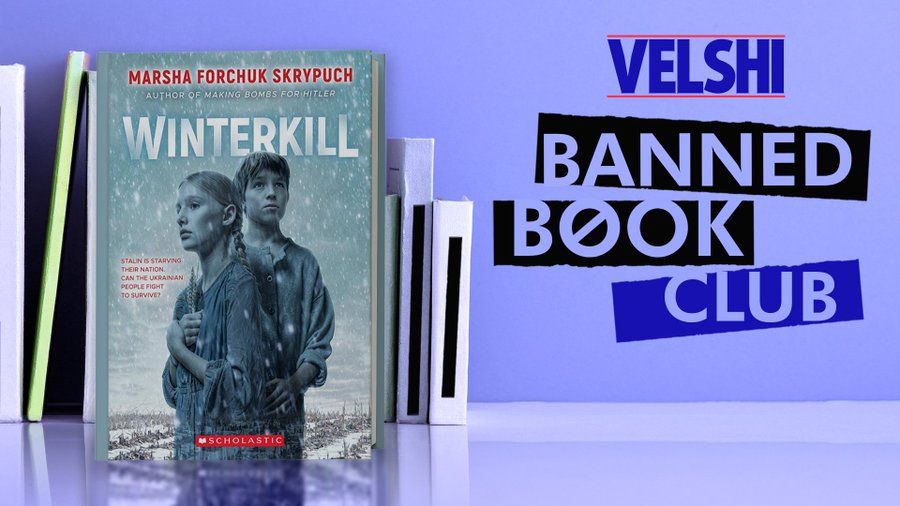
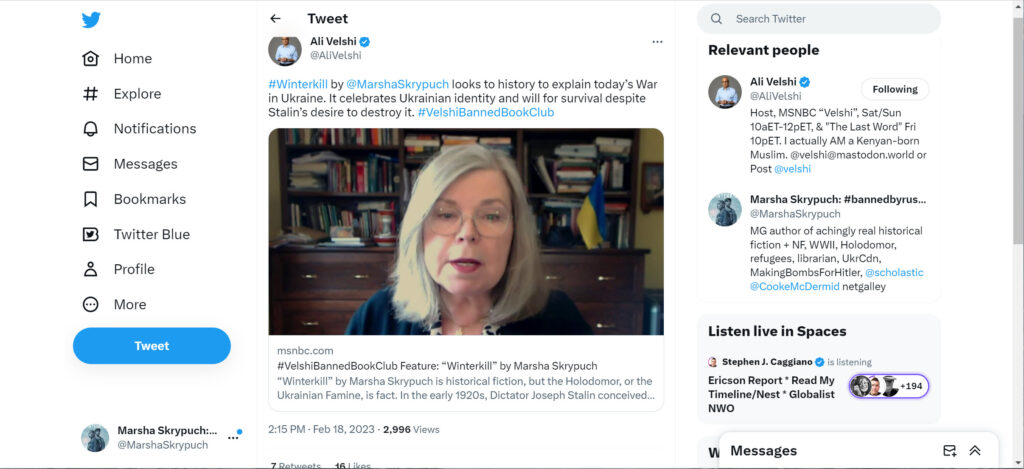
It was pajama day at Traphagen school on my Scholastic Book Fairs virtual visit. I decided to join in and wore my housecoat. Many of the students were partway through Winterkill so they asked me not to give away anything past chapter 11! Great questions, nice students! And now I’m considering wearing a hat to bed!
